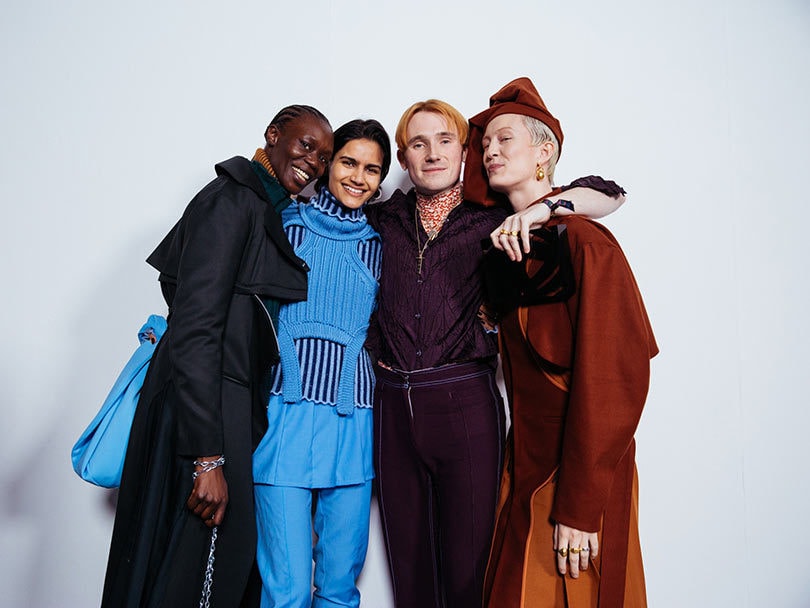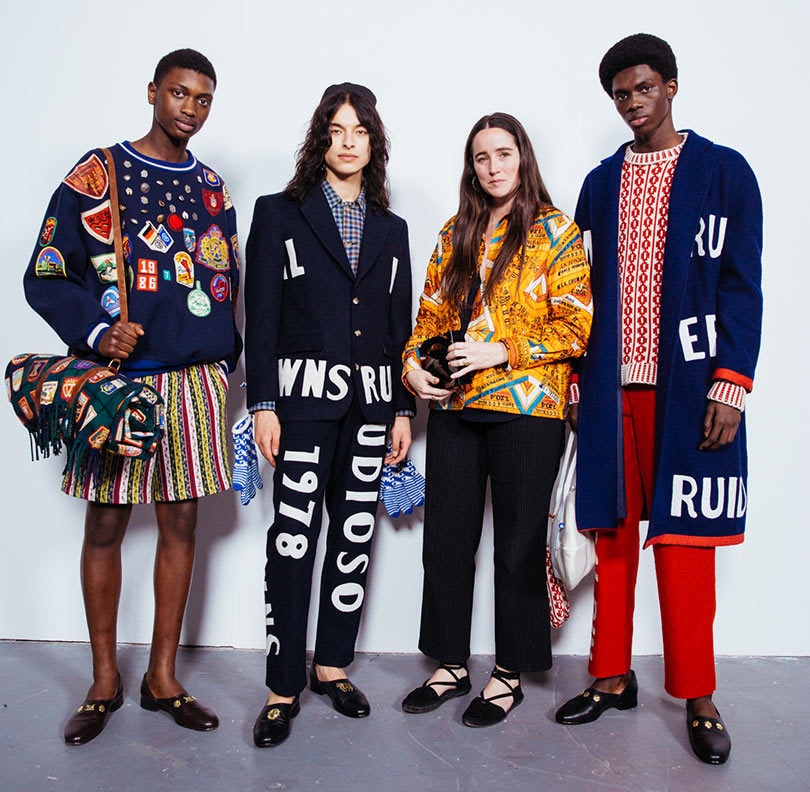International Woolmark Prize Celebrates the Fashion Talents of 2020
Richard Malone and Emily Bode redefine what sustainability looks like.
A new wave of designers is weaving sustainability into their work. Climate change is altering the way we consume and this generation of emerging designers is finding innovative solutions to redefine the industry.
Last night, Central Saint Martins graduate Richard Malone, took the International Woolmark Prize for his creative use of biodegradable, handwoven fabrics. The Irish-born designer became the 8th winner of the 2020 grand prize and American designer, Emily Bode won the inaugural Karl Lagerfeld Award for Innovation, conceived in honor of the late designer and International Woolmark Prize alumnus.
Since its launch in 1953, the International Woolmark Prize celebrates fashion talents from around the world who demonstrate outstanding innovation in product or manufacturing. It has been awarded to some of the biggest names in fashion like Karl Lagerfeld and Yves Saint Laurent. For 2020, designers were expected to showcase the versatility of Merino wool with full traceability—from its origin to the supply chain—in a capsule collection of six wool looks.
According to the International Woolmark Prize, more than 300 designers from nearly 50 countries applied to participate in the 2020 edition. The panel this year included Dior Men’s artistic director Kim Jones, editor-in-chief of British Vogue Edward Enninful, Japanese artist Takashi Murakami and China’s sustainability advocate, Shaway Yeh. The judges selected a winner from 10 finalists—A-Cold-Wall, Blindness, Bode, Botter, Feng Chen Wang, GmbH, Ludovic De Saint Sernin, Matthew Adams Dolan, Namacheko and Richard Malone.
With the use of orange, blue and green textiles, the winner demonstrated that sustainability doesn’t have to look so dull. Malone was inspired by his upbringing in Wexford to create bold, handwoven garments—reminiscent of the working class uniforms. The Irish designer works exclusively with weavers or mills in Tamil Nadu, India that have constructive initiatives, using only organic, plant-derived, and azo-free dyes.
“Winning the Woolmark Prize is completely unexpected,” Malone told the International Woolmark Prize after the show. “It means we can continue working with this supply chain and share our learning with other brands and designers. It also opens up the dialogue of fashion so more people can be part of it. Thank you to Australia’s woolgrowers for growing this incredible fiber.”
Emily Bode was the first winner of The Karl Lagerfeld Award for Innovation for her use of mixed deadstock fabrics found in abandoned factories and traceable and certified merino wool jacquard knits.
With innovative style, the 2020 round of finalists demonstrated luxury can be ethical and sustainable.

